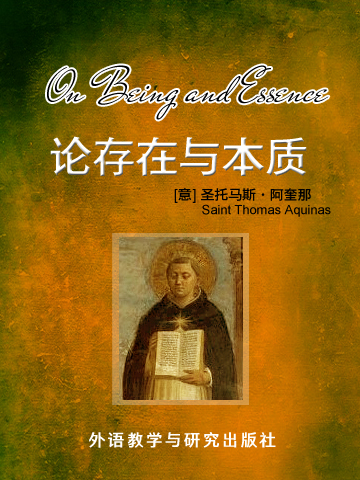生存的哲学尽在书中,若你想改变,那就快来学习学习吧!
In composite substances we find form and matter, as in man there are soul and body. We cannot say, however, that either of these is the essence of the thing. That matter alone is not the essence of the thing is clear, for it is through its essence that a thing is knowable and is placed in a species or genus…
这本书主要讲述一些生活上的哲学。生存和如何生活一直都是人们不断思考着的问题。当今社会中,人们依然希望在自己的生活方式、事业和思想上做出一些改变。而这本书,就能为你解答疑惑。
A small error at the outset can lead to great errors in the final conclusions, as the Philosopher says in I De Caelo et Mundo cap. 5 (271b8-13), and thus, since being and essence are the things first conceived of by the intellect, as Avicenna says in Metaphysicae I, cap. 6, in order to avoid errors arising from ignorance about these two things, we should resolve the difficulties surrounding them by explaining what the terms being and essence each signify and by showing how each may be found in various things and how each is related to the logical intentions of genus, species, and difference.
- Prologue
- Chapter I
- Chapter II
- Chapter III
- Chapter IV
- Chapter V
- Chapter VI
- 书评 写书评
- 笔记
-
书评加载中...























 京公网安备 11010802032529号
京公网安备 11010802032529号
笔记加载中...